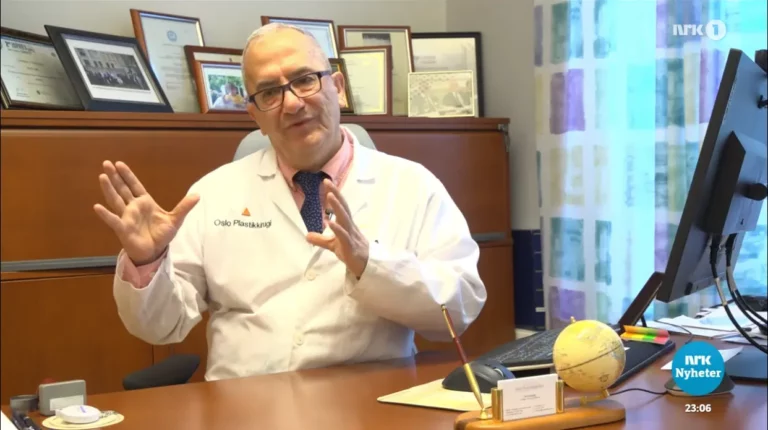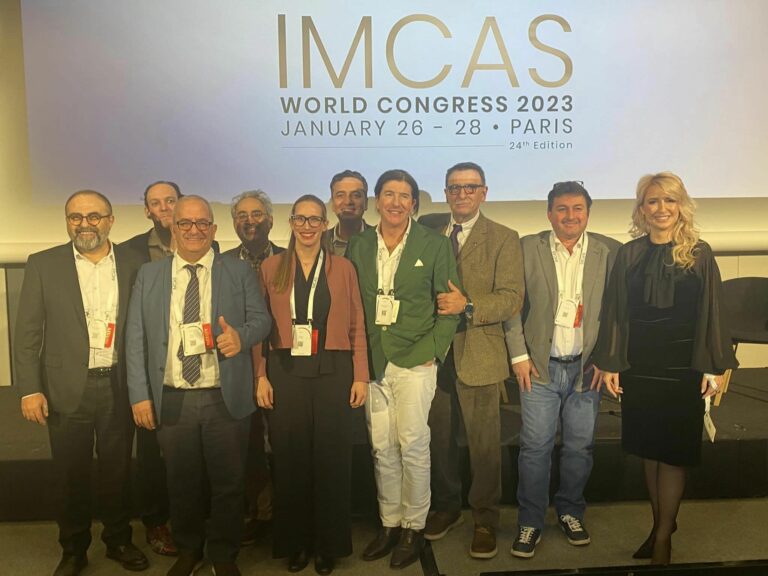The clinic’s chief physician was interviewed by utdanning.no, which is a web portal under the Ministry of Education, where he told a little about the path to education as a plastic surgeon and what a plastic surgeon’s everyday life and tasks look like.
“This is important to take good care of new patients. Many people have to be rejected because they are not mentally ready for an intervention and / or have unrealistic expectations of the outcome. «
«I am passionate about research, and publish professional articles on new surgical methods, as well as patients’ quality of life after surgery.»
Occupation Interview
Plastic surgeon
Being a plastic surgeon is in many ways a new field in the medical profession, and we are constantly writing new history, says Dr. A. Kalaaji, a consultant. Plastic Surgeon, Oslo Plastic Surgery Clinic- Oslo
Why did you choose this profession?
– I trained as a doctor and did not primarily think of further specialization. Through the studies I got an interest in plastic surgery. There was something about the creativity behind thinking in 3D format, as well as a great pleasure in designing and reconstructing both functionally and aesthetically. The wide range of treatment for patients of all age groups – also made me choose plastic surgery. Over the years, I have worked with cancer of the head, neck, breast and skin, lip palate, burns, nerve palsy, tissue infections, hand surgery and cosmetic surgery, and can literally sign that no days have been the same.
What tasks does your professional life consist of?
– Now I run a private clinic, where we perform cosmetic surgery. I divide my time between operations and consultation and control days. I have two to three operating days and two consultation and control days per week.
On an operation day, I go through the last details and make sure the patient is ready for surgery. I work with anesthesiologist / anesthesiologist and surgical nurse. Depending on the type of operation, an operation takes from 45 minutes to 3.5 hours. There may be surgeries such as eyelid plastic surgery, excessive sweating, nasal plastic surgery, face lift, breast implant / lift or abdominal plastic surgery. I also perform combined procedures, such as breast enlargement with own fat and figure shaping in one operation. When the patient is awake, I start with the next surgery and am as efficient as possible. In one day I can perform from three to five operations.
On consultation days, I spend a good deal of time talking to the patient, listening to his or her reasons why they want to be operated on. This is important as many must be rejected as they are not mentally ready for an intervention and / or have unrealistic expectations of the outcome.
In addition, there are many administrative tasks of running your own clinic. I plan one year at a time, and I set aside time to attend and lecture on courses and congresses both nationally and internationally. I am engaged in research and publish specialist articles on new surgical methods, as well as patients’ quality of life after surgery. I am also a mentor for medical students and find it rewarding.
What education and / or qualifications are needed to become a plastic surgeon?
– One must have basic education and authorization as a doctor. Thereafter, a turnaround service must be completed, which is one year’s work in hospitals and half a year in the general practitioner’s office and emergency room. You can reach the goal in different ways. The most common route is two years in general surgery and four years in plastic surgery.
Other relevant education may include research or working in an ear-nose-throat department. In Norway, there is no exam to become a plastic surgeon, but you must have a certain number of compulsory courses (Nordic courses), as well as a full operating list with a specific number and type of operations, in order to apply for specialist expertise. It is not uncommon for a double specialty to be acquired, in addition to being a specialist in, for example, ear nose and throat, anesthesia or thoracic surgery, and then become a plastic surgeon. For cosmetic surgery, there is no formal education beyond a compulsory course, and one must have acquired the necessary experience on their own after specialization.
I myself have 25 years of clinical experience, both in the public and private sectors, as well as a doctorate in plastic surgery.
What’s the best thing about your profession?
I love the variety, challenges, and switching between emergency operations following traffic accidents and burns, to pre-planned interventions. As a self-employed person with my own clinic, I have a great influence on my own everyday life. Being able to help and meet satisfied patients is very satisfying. Every patient and every operation is unique!
What do you dislike most about your profession?
– There is nothing I dislike about my profession. If I have to mention one thing, it is sometimes challenging to «read the patients’ dreams». Unfortunately, some patients may have unreachable and unrealistic thoughts on what can be achieved with surgery.
What other areas of work / opportunities exist within your profession?
– There is a great diversity of work opportunities. A plastic surgeon can work at one of the large university hospitals, at regional and local hospitals, at private clinics either in groups or alone, and you can work in research or with teaching. The profession is also attractive if you want to work voluntarily in humanitarian organizations abroad, such as Smile Train for liposuction surgery.
What to expect in pay in this profession?
– Salary is in proportion to how much you work. In the public sector, wages range from NOK 700,000 to one million. It is usual to negotiate until one day a week, for example, to do research. In the private sector, some surgeons can earn up to two to three times more than the public.
How do you consider the chances of getting a job in this profession?
– I consider the chances are great and have never heard of an unemployed plastic surgeon. The challenge is to enter a specialization course to become a plastic surgeon. The profession is becoming increasingly popular. If you are flexible and hardworking, willing to move a bit, and have the qualities and ability to think in 3D, then I see the possibilities as very good.
Text: Bente Haraldstad Delmas
Share this page



